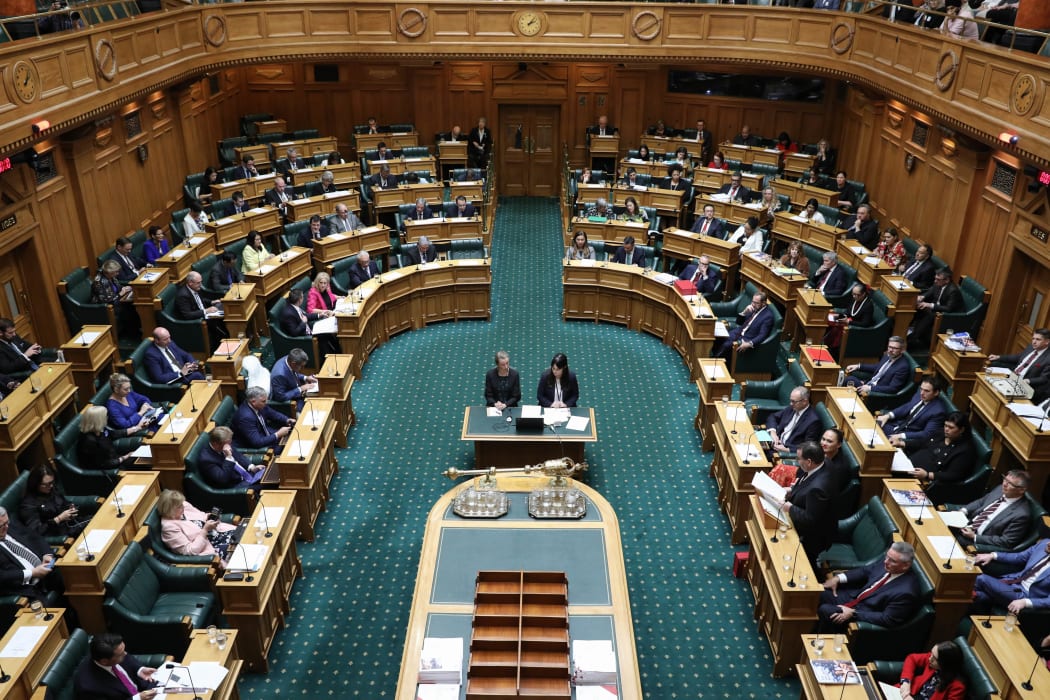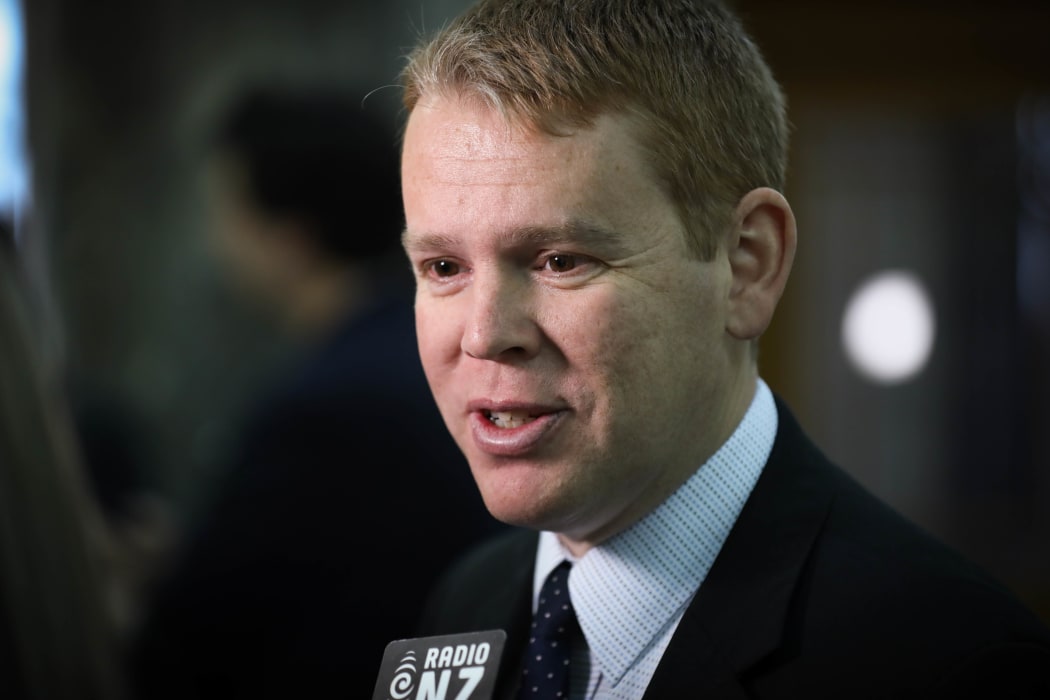Every year around May the Government releases a Budget but after a few days of media commentary and analysis the Budget tends to drop off the radar for most people.
Not so for Members of Parliament (MPs).

Minister of Finance Grant Robertson gives his budget statement to the House in May 2019. Photo: VNP / Phil Smith
The Budget is a bill which must be passed by Parliament and that process is slightly different from usual.
-
First reading - no debate (over very quick)
-
Minister of Finance’s statement (anywhere from 30min to an hour)
-
Second reading (up to 15 hours in total but spread over a few days)
-
Estimates hearings (Weeks of Ministers turning up to select committees for a grilling)
-
Estimates Debate/Committee of the Whole House (11 hours of debate on reports from the estimates hearings)
-
Third reading (three hours)
MPs are currently up to the Estimates Debate which is line by line scrutiny of the Government’s spending decisions.
“There’s about roughly $87billion worth of spending in this year’s budget and so that will get heavily scrutinised although only about $3b of that is additional money” says the Leader of the House Chris Hipkins*.
*The Leader of the House is in charge of organising what the House of Representatives (the MPs) will work on.

Minister of Education and Leader of the House Chris Hipkins Photo: VNP / Daniela Maoate-Cox
“There’s a thing called baseline spending which is the money you spend year in year out and then governments can add to that spending from year to year.”
It’s a little bit of new spending and reprioritising and while it seems like a lot of money Mr Hipkins said the debate is mostly about the allocation of $3-$5billion.
The country keeps running in the meantime thanks to an imprest-supply bill.
“It allows the Government to have money to come and go on while the Budget goes through its remaining stages to be passed,” said Mr Hipkins.
“I think people start working in accordance with the Budget from when it’s read and people know what the money is that’s coming their way but the rest of it really is about scrutiny.”
Scrutiny is one of the main tasks for the Parliament. It’s the job of MPs who aren’t in Government (that’s non-ministers) to quiz the Government on their spending decisions and keep them in check.
They do this through question time, written questions, and through the select committee process.
“Select committees have a got a responsibility to go through and test whether or not that’s where the money’s actually going to be spent and what the outcomes are that we might be able to get from that spending.”

The Education and Workforce Select Committee during an Estimates Hearing for Education. Photo: VNP / Phil Smith
Without the Budget there’s no money for the Government to run the country so it’s an important task for Parliament.
“Without question the Budget is probably the most important thing that the House does on a year by year basis,” said Mr Hipkins.
“When you look at the volume of money that Government collects in taxation, in other forms of revenue, the Budget by far and away, stands head and shoulders above the rest of the stuff that we do.”
The Estimates Debate is split into ten sections with about an hour spent on each one. That hour is started with a select committee chairperson talking about the report on the hearing in which a Minister was quizzed about their spending decisions.
“That is where priorities are made or broken and the Budget really is the centerpiece of the Parliamentary year.”
Just under nine hours remain for this debate and it can be watched live on Parliament’s website.


